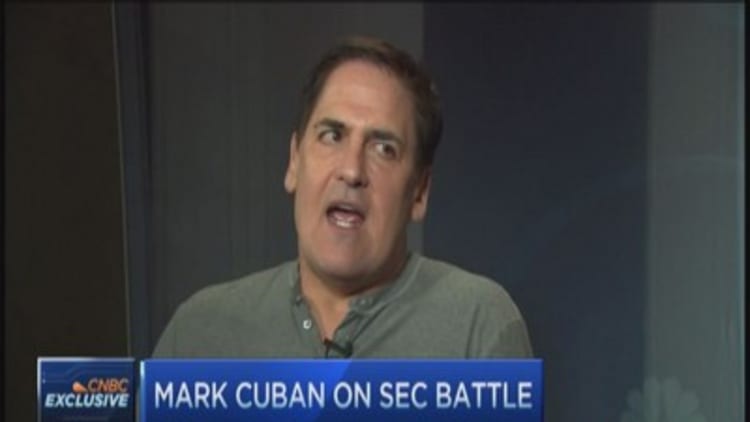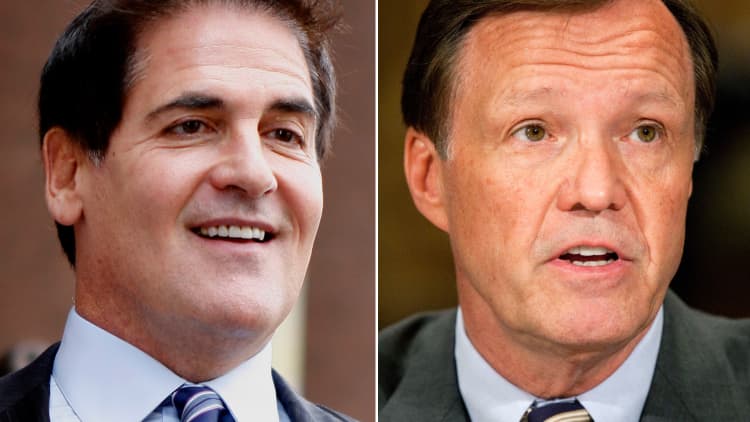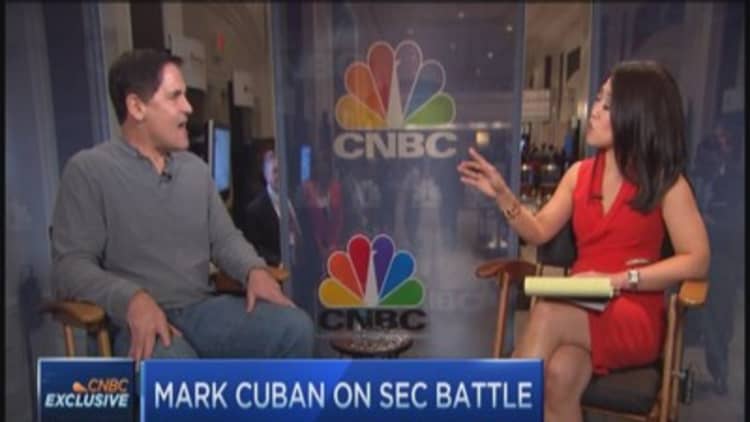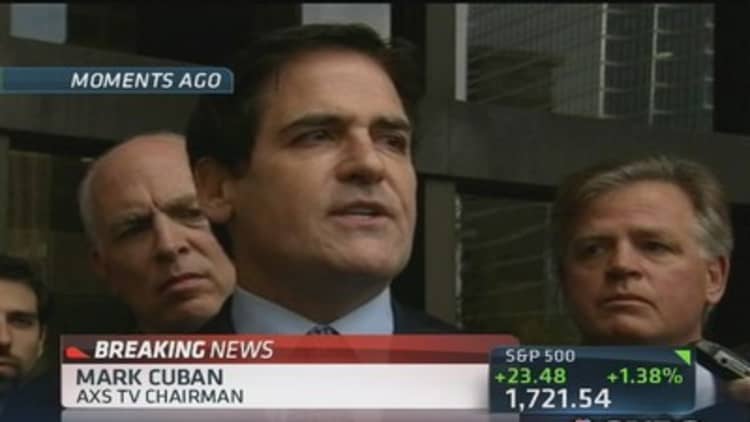


In recounting his long debacle with the SEC, Mark Cuban said he didn't take the issue seriously at first because he didn't think he'd done anything wrong. "Then I turn on CNBC, and I'm the headline."
Cuban, once the target of a highly publicized U.S. insider trading probe, met publicly with Christopher Cox, who served as chairman of the Securities and Exchange Commission when it probed Cuban for insider trading, for the first time on Tuesday. Cox recused himself from the probe at the time.
A jury acquitted Cuban in 2013, and he resolved to bring about reform for the country's top financial regulator.
If the SEC was a business, the only way to salvage it would be to "burn it down and start it from the beginning," Cuban said. "The best steps we can take with the SEC, particularly when it comes to enforcement and insider trading and accounting, is to extract that from the SEC and create a different organization."
Cuban said if the Brady Rule, which compels prosecutors to disclose evidence that is favorable to the defendant, had been in effect at the time, his case would have gone away quickly. Instead, he says he spent eight years and $20 million fighting the claims.
Cox, who was recused from direct involvement in Cuban's case while he was chairman, acknowledged that the SEC needs to reallocate its resources. But he clarified by email that he does not want the enforcement division to lose funding. Rather, instead of funding enforcement as it has in the past, as a direct percentage of the increased funding from Congress, more money should go to other divisions in the SEC, which he says are "starved."
"If we're going against a Mark Cuban then we can't go against somebody else" or address pandemic risks that might be spreading, he said, during the MarketCounsel session. The SEC's rationale is to move these cases as fast as possible, Cox said.
Cox said U.S. regulators were not at scale to deal with the treats of the future that are typically cross-border threats. Cuban took Cox's notion a step further and called SEC's enforcement policy pointless.
"The biggest IPO in the history of our stock market is in a communist country [China] where, by definition, you couldn't stop insider trading if it was the most important thing you set out to do," Cuban said speaking of Alibaba's $21.8 billion IPO earlier this year.
He said U.S regulators should not have allowed Alibaba to list on the NYSE.
Read MoreMark Cuban takes on Snapchat with new messaging app
Cuban said he still doesn't trust the agency and said he buys SEC trial transcripts to read them.
"It isn't just about the money or about the fight," he said. "What if I lose? What am I gonna tell my kids?"
At the heart of the SEC you want to improve capital formation, yet over the past several years the number of IPOs has dropped by 40 percent, Cuban said.
Cuban and Cox came together in front of hundreds of financial advisors at the MarketCounsel Summit in Las Vegas.
In 2008 the SEC accused Cuban of avoiding more than $750,000 in losses by illegally selling 600,000 shares of Canadian search engine company Mamma.com in 2004.
After his acquittal, Cuban lashed out at the SEC's processes saying that he felt the suit was a personal attack.

CLARIFICATION: Christopher Cox served as chair of the SEC when the organization probed Mark Cuban for insider trading charges, but was recused from direct involvement in the case. Although he says reallocation of SEC funds are needed, he noted that he does not want to see the enforcement division lose funds.


